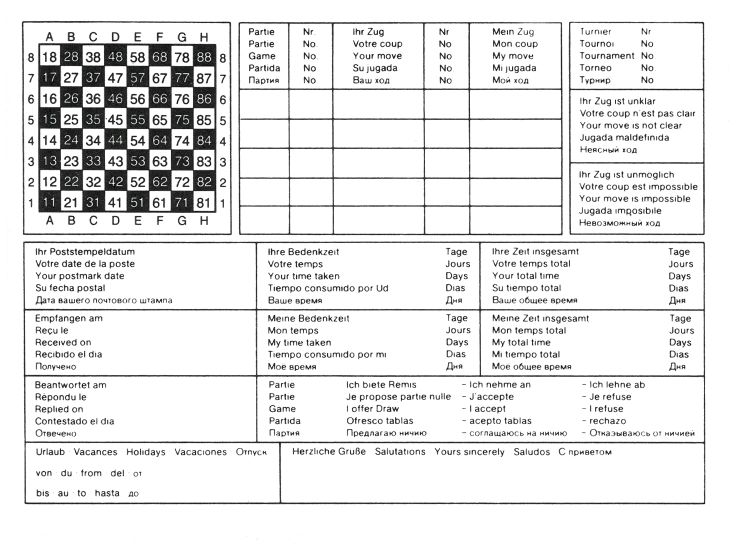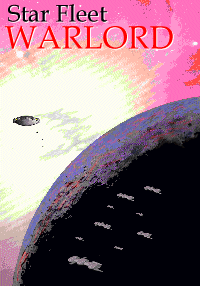Play-by-mail game
A post-game (also letter game or game by mail, in English: play-by- mail game, PBM) is a game that is played by means of letters, as the parties usually do not stay in the game in the same place and play simultaneously. The oldest known post-game is the correspondence chess. The idea to other turn-based games post was created in the 1960s in the U.S. and celebrated in the 1980 years of their breakthrough in the German language area. From the post-game, the so-called Play by eMail has developed, in which ships instead of letters much faster and cheaper e- mails in the 1990s.
The working principle is always the same: The game is divided into rounds, which correspond to a letter drive. Many post games have a large number of players, so that trains the individual players will not be sent to the players, but to a gamemaster. The trains usually have to be received by a certain date ( train delivery date, ZAT) to the team captain, after this then evaluates the trains and then sent a summary of the results to all players.
Many of the typical post- games have a very rigid rule canon, which sometimes reminds of simple programming languages to make the trains with many players uniform and to facilitate sequential evaluation. Some games, however, have almost roleplaying -like character.
According to correspondence chess, the strategy game Diplomacy was the second game, which was played in this manner; this plays an important role even today. Currently also widespread is the football simulation game United.
There are a number of PBM - zines that combine several post games in a regularly published magazine and subscribe at cost price from the other players. In addition to many free Post-playing, there are commercial vendors, usually require a turn- based fee for participation. The target audience for commercial suppliers is becoming smaller in the classical post games in the age of online role playing games.
The boundary of the modern post game to computer game is fluid, as more often programs are used both for the preparation of trains by the player as well as for the evaluation by the game leader.







